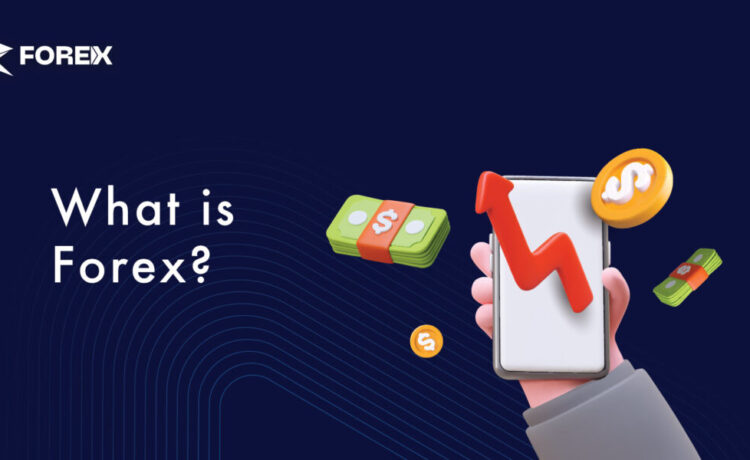The foreign exchange market, commonly known as forex or FX, is the global marketplace where currencies are traded. It operates 24 hours a day, five days a week, and is the largest financial market in the world, with a daily trading volume exceeding $6 trillion. Forex plays a critical role in the global economy, facilitating international trade, investment, and economic stability.
Understanding the Forex Market
The Forex market is decentralized. It has no physical location or central exchange. Instead, trading takes place electronically over-the-counter (OTC) through a network of banks, brokers, and other participants. The primary participants in this market include central banks, commercial banks, financial institutions, corporations, and individual traders.
Currency trading in the market occurs in pairs, such as EUR/USD (Euro/US Dollar) or GBP/JPY (British Pound/Japanese Yen). Each pair represents the exchange rate between the two currencies, indicating how much of the second currency is needed to purchase one unit of the first.
How Forex Works
In the FX market, currencies are traded in lots, which can be standard, mini, or micro. A standard lot equals 100,000 units of the base currency. The price of a currency pair is determined by supply and demand, influenced by various factors such as economic data, geopolitical events, and market sentiment.
Forex trading involves two main activities: buying and selling. Traders aim to profit by predicting the direction of currency prices. For example, if a trader believes the Euro will strengthen against the US Dollar, they may buy EUR/USD. If the exchange rate increases, the trader can sell the pair at a higher price, realizing a profit.
Key Features of Forex Trading
- Leverage: Forex allows traders to control large positions with a small amount of capital through leverage. While this amplifies potential profits, it also increases risk.
- Liquidity: As the most liquid market globally, forex ensures that traders can enter and exit positions quickly without significant price changes.
- Volatility: Currency prices can fluctuate rapidly due to economic news, central bank decisions, and geopolitical events, creating opportunities for traders.
- Accessibility: With the advent of online trading platforms, forex is accessible to anyone with an internet connection and a modest initial investment.
Currency Pairs
Currency pairs in forex are categorized into three main groups:
- Major Pairs: These include the most traded currencies globally, such as EUR/USD, GBP/USD, and USD/JPY. Major pairs are characterized by high liquidity and tight spreads.
- Minor Pairs: These pairs involve major currencies excluding the US Dollar, such as EUR/GBP or AUD/NZD. They are less liquid but still widely traded.
- Exotic Pairs: These involve a major currency paired with a currency from a smaller or emerging market, such as USD/TRY (US Dollar/Turkish Lira). Exotic pairs are less liquid and have higher spreads.
Why Trade Forex?
Forex trading appeals to a wide range of participants due to many advantages such as:
- Diverse Opportunities
- Flexibility
- Hedging
- Speculation
With numerous currency pairs available, traders can find opportunities in various economic conditions.
The 24-hour nature of forex allows traders to participate at any time, accommodating different time zones and schedules.
Businesses and investors use forex to hedge against currency risk, protecting themselves from adverse exchange rate movements.
Individual traders often engage in forex to capitalize on short-term price movements and generate profits.
Risks in Forex Trading
While forex trading offers significant potential rewards, it also carries inherent risks. These include:
- Market Risk: Prices can move unpredictably, leading to potential losses.
- Leverage Risk: While leverage can amplify profits, it can also magnify losses, sometimes exceeding the initial investment.
- Counterparty Risk: In the OTC market, traders rely on the solvency of brokers and counterparties, which can pose risks in case of financial instability.
- Emotional Risk: Trading requires discipline and a clear strategy. Emotional decision-making can lead to impulsive actions and losses.
Getting Started in Forex Trading
Getting started in forex requires following some steps. The very first step is understanding fundamental concepts such as currency pairs, leverage, and market analysis is essential. Then comes choosing a broker. Select a reliable and regulated broker that offers competitive spreads, strong trading platforms like MetaTrader 5, and educational resources. You can find all these features on ZitaPlus, a premium broker with reliable regulations and competitive prices.
Once you have created an account on a broker, verify your identity, and fund it with an initial deposit. Whether using technical analysis, fundamental analysis, or a combination of both, a well-defined strategy is crucial. So develop a strong trading strategy. No need to go pro in the beginning. You can start small by creating a demo account or small trades to gain experience without significant financial risk.
The Role of Technology in Forex
Technology has revolutionized forex trading, making it accessible and efficient. Modern trading platforms provide advanced tools for charting, analysis, and execution, empowering traders to make informed decisions. Additionally, automated trading systems, such as Expert Advisors (EAs), allow for algorithmic trading, reducing the need for manual intervention.
In a Nutshell
Forex is a dynamic and influential market that offers a wealth of opportunities for participants worldwide. Whether for hedging, speculation, or investment, the forex market provides unparalleled access, liquidity, and flexibility. However, success in forex trading requires knowledge, discipline, and a solid understanding of the associated risks. By approaching forex with the right mindset and preparation, traders can navigate the complexities of the market and pursue their financial goals.
Read More From Techbullion


